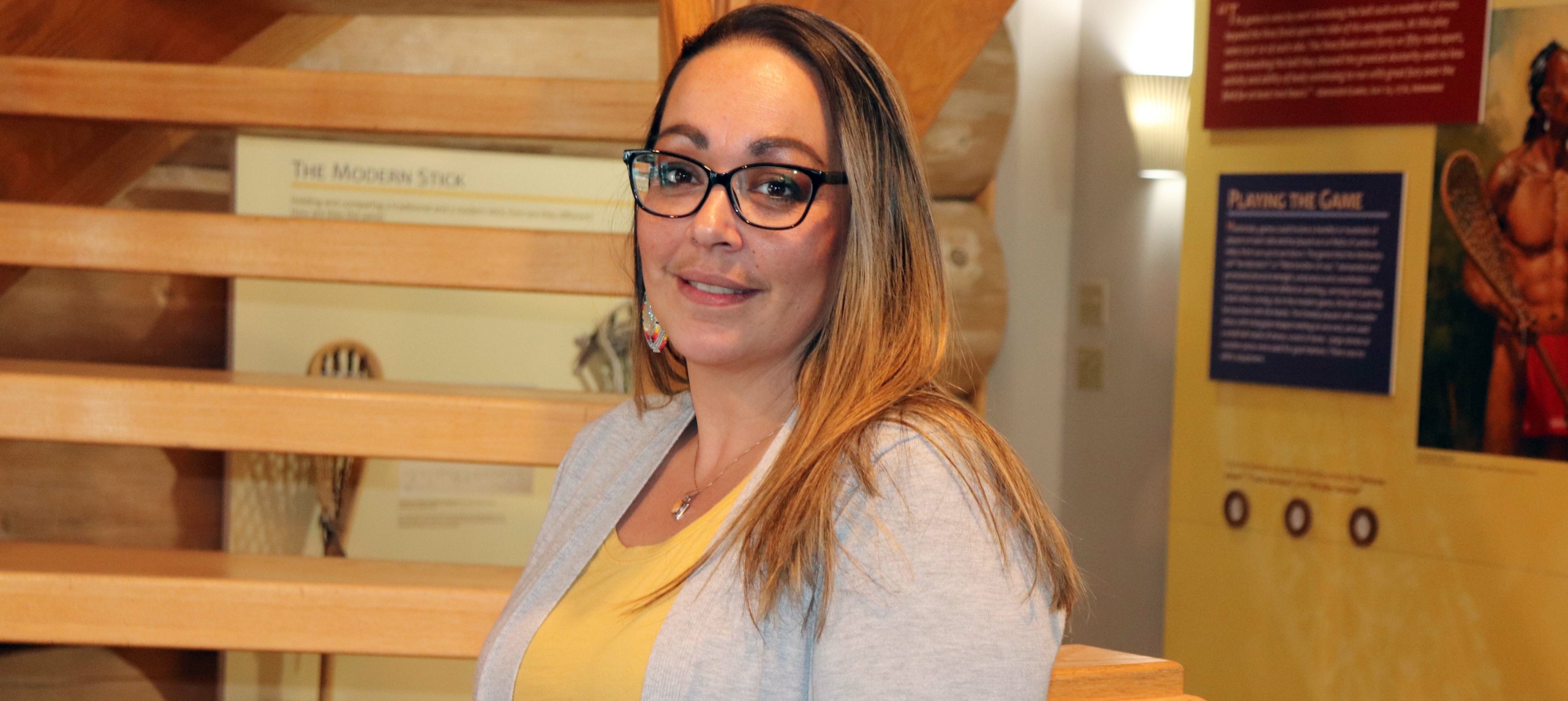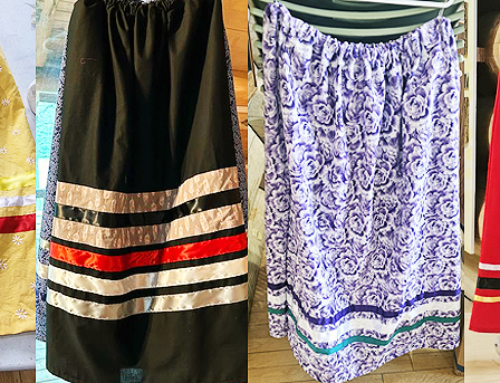The Oneida Indian Nation’s Shako:wi Cultural Center welcomed Nation Member Doris Wilkins-Wilt (Wolf Clan) as its newest assistant in January. Doris is thrilled to be learning more about her culture and helping to inform others as well.
Among her many responsibilities, Doris will be trained on tours and presentations. With Jessica Farmer, the Nation’s Cultural Programs Coordinator, constantly traveling around the region to give presentations, Doris will be able to walk visitors through Shako:wi and answer any questions they may have. In addition to cultural projects, Doris will also manage the Shako:wi gift shop. In this role, she will process sales for visitors and serve as the gift shop’s new buyer, adding offerings of authentic Native goods.
Between school visits and Turning Stone Enterprises team member orientations, there will be a lot of opportunities to inform and educate. It will be a big change from her previous jobs.
“I was the manager at Kraigʼs Kegs in Sherrill for almost five years and then I started working at the Maple Leaf Market in Verona as the night shift manager,” Doris said.
Doris still works at Maple Leaf, but is excited to add a day job where she can absorb everything about Oneida culture.
“Right now I’m reading up on the literature that’s here so I can get a better understanding,” she added. “Outside of both of my jobs, I am still a single mother to seven young children who are really eager to learn just as I am. I’m looking forward to more projects and learning different ways to do things.”
At Shako:wi, Nation Members and other American Indians can sign up for classes to learn how to bead, make moccasins, sew ribbon skirts and shirts, and much more. Jessica Farmer has added more classes that touch on a multitude of traditional Native skills.
Later in March, the Center will host cooking classes. Other classes are being planned for the future as well.
“We’re going to do bison white corn chili and Three Sisters cornhusk wraps,” Jessica explained. “Then we’re going to make wheels of cornbread to go with it.”
Jessica is also planning a more comprehensive class on cooking with white corn. With more modern applications, white corn can be used to bake cookies, cakes and other flour-based treats.
It’s all exciting for Doris, who will get to learn and teach alongside Jessica.
“I can make a no-face doll and I can make corn husk dolls,” Doris said. “I also can make the Tuscarora beaded birds. I had two beaded birds that I entered into the New York State Fair Six Nations Agricultural Society Indian Village competitions in two different years and both placed with ribbons.”
In 1997, Doris moved back to Oneida after living in Syracuse and Canastota. She remembers going to different classes at the Cultural Center and the Nation’s Cookhouse.
“I still have my original language book,” Doris reminisced.
“It’s a whole different experience learning about the culture when you come here,” she added. “When you are sitting in a classroom or shown pictures, you don’t get that immersive experience. So that will hopefully help people get more interested and retain the knowledge that we give them.
Doris is excited to have local schools visit Shako:wi, too. Her daughter, Pamela, is going into fourth grade next year at the Oneida City School District, and it is clear to Doris there are still obstacles to challenging preconceived notions about American Indians.
“I’ve heard during my last presentation we had here, from a fourth grader, who wanted to know if there were real Indians still here,” Doris said. “I get it, they’re little kids and they only know what they are exposed to, but it’s really alarming that it’s still being asked. I’m proud that my daughter responds by saying ‘I’m Indian,’ but it’s important to reinforce that we are still here.”
It highlights the need to keep sharing Oneida and Haudenosaunee culture. It’s all a learning experience, but Doris is eager to take it all on.
Since she started working at Shako:wi, Doris says she has found much peace.
“I’m sure most people would complain after working almost nine hours overnight and having to go work another eight hour shift,” Doris said. “I am actually upset I only get to come here three days a week. I don’t think I have ever felt more at home as I do when I am here.”
“The best thing about this job is learning new things about our ancestors,” she added. “I learned more in the last few weeks working here than I have in the last 30 years. I want to be able to teach those classes I went to when I was younger.”






